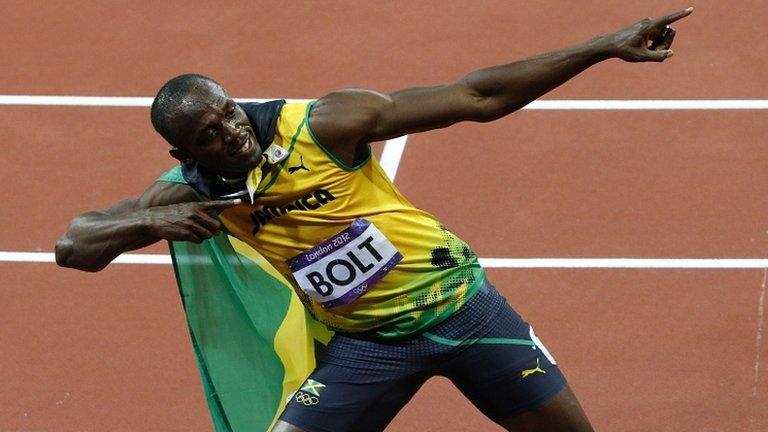The media and the Olympic Games
- Published
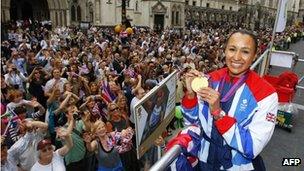
The good feeling spilled out onto the streets of London for the victory parade
The huge crowds packing the streets for the Olympic and Paralympic parade were the final endorsement - if any were needed - of the triumph of London 2012.
"Thanks a million" trumpeted both the Daily Mail and Daily Mirror, reflecting estimates of the size of the crowd.
And let's not forget that such vibrant media coverage was a crucial catalyst in uniting the nation for almost seven weeks, reaching a crescendo in front of Buckingham Palace on Monday afternoon.
For newspapers, broadcasters and digital media, it has been a remarkable summer. A succession of astonishing images, inspired front pages, souvenir supplements, pithy tweets and hour-upon-hour of live action not only shook up viewing habits - giving BBC One it's biggest ever lead, external over ITV1 so far this year, and sending record audiences to Channel 4.
It also boosted newspaper sales by an estimated 1m copies, external and transformed attitudes to sport, disability and Britain itself.
The athletes' parade through central London brought together the Olympians and Paralympians, not to mention the BBC and Channel 4, in a way which confirmed that the two Games had become inextricably linked, not just by Locog, but in the public mind.
This wasn't inevitable.
After the enormous success of the Olympics - boldly dubbed "the warm-up" by Channel 4 in its "Superhumans" ad campaign - there was a danger that the Paralympics could have been a damp squib if the media had not embraced the Games so warmly.
The spectacular opening ceremony with Professor Stephen Hawking attracted a peak TV audience of 11m. That was huge by Channel 4 standards, but still well down on the 27m who saw the Olympics opening on the BBC.
Complaints about the frequent advertising breaks, external on Channel 4 took the shine off its innovative coverage, external and the criticism continued, external as the sports events proceeded.
Viewing figures for the sport were inevitably lower than for the opening ceremony - and on the first Saturday morning there was a noticeable drop in front-page newspaper coverage. After the Olympic "warm-up", were things cooling down, I asked?
Not for long, it turned out. For this was to become "Super Saturday", according to headline-writers at the Sunday Mirror, external.
"Paralympic poster girl Ellie Simmonds last night capped a golden day for Team GB as she smashed the world record on her way to 400m glory. Records tumbled and five golds were won - making it Britain's most successful day in the history of the Games."
That day, Channel 4 won its biggest Saturday ratings share in seven years. Unusually, between 17:50 18:30, it was the most watched channel in the UK .
By Monday, it was extending its Paralympics coverage, acknowledging that millions more viewers than expected, external were tuning in.
That week, viewing rose steadily, helped by comprehensive newspaper coverage of the rising GB medal haul and the "blade runner" controversy sparked by Oscar Pistorius. And we got used to the sponsors' messages, as Sainsbury's and BT bookended the commercial breaks with mini-profiles introducing us to the Paralympic stars.
On "Thrilling Thursday" Jonnie Peacock's gold medal win in the T44 100m attracted the UK's biggest ever Paralympic sports audience, external with a peak of 6.7m viewers.
As public interest in the Games grew, so attitudes to disability changed, according to a survey conducted by YouGov, external for Channel 4. More than 80 per cent of the 2,000 people who were polled agreed that disabled athletes were as talented as able-bodied athletes. That rose to 91 per cent among those who had watched the coverage.
"I'm delighted that we've been able to bring a new audience to the Paralympics and, more importantly, that our coverage has played a part in delivering a lasting legacy in changing people's perceptions of both disability and disabled sport" said Channel 4's chief creative officer Jay Hunt.
Sunday's closing ceremony - the "festival of flame" - was watched by 7.7m viewers at its peak.
Though down on the audience for the opening ceremony, it was still the most watched programme between 21:00 and 23:00, and it helped make Channel 4 the most watched channel across the day.
And so to the very last day of this remarkable summer of sport.
The athletes' parade was broadcast live by both BBC One and Channel 4, the two Games' TV rights-holders, as well as Sky News and the BBC News Channel. More than three million viewers watched on average, with a peak of over 4 million as the parade reached its climax - unusually high for a weekday afternoon programme.
As Kenneth Wolstenholme famously said on another joyous occasion, "They think it's all over... It is now."
And the media, like the nation, will find it hard to fill the gap.
- Published10 September 2012
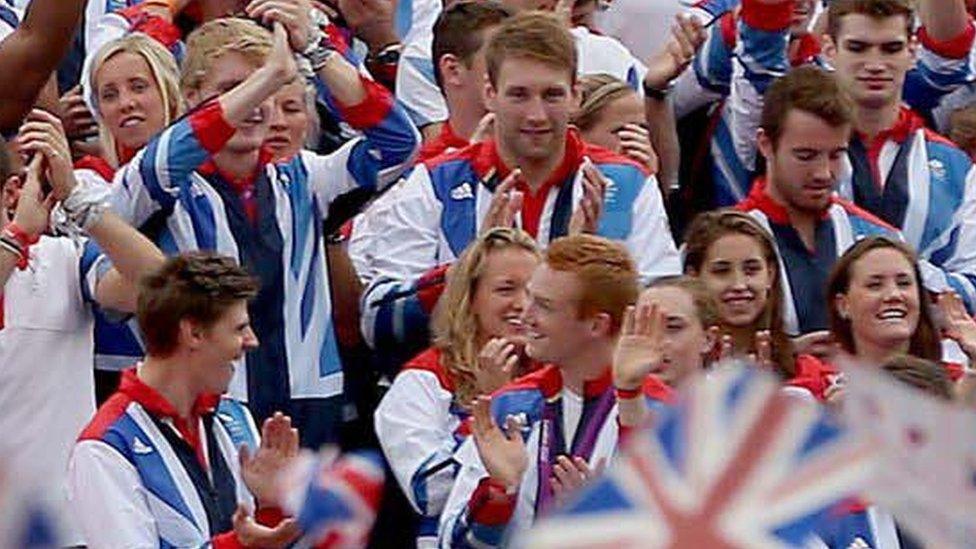
- Published6 August 2012
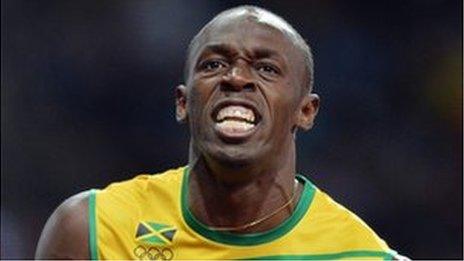
- Published10 September 2012
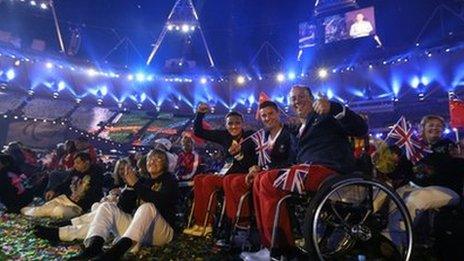
- Published14 August 2012
